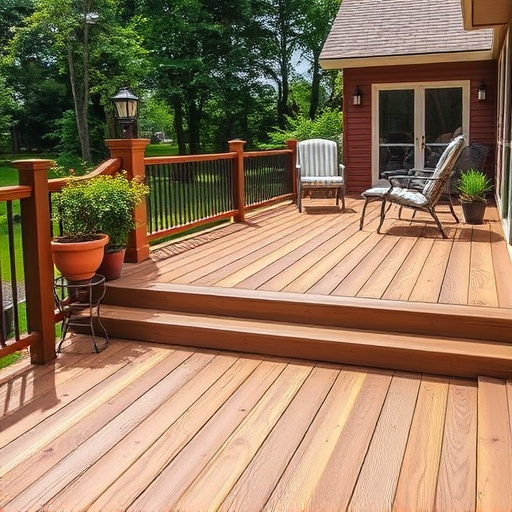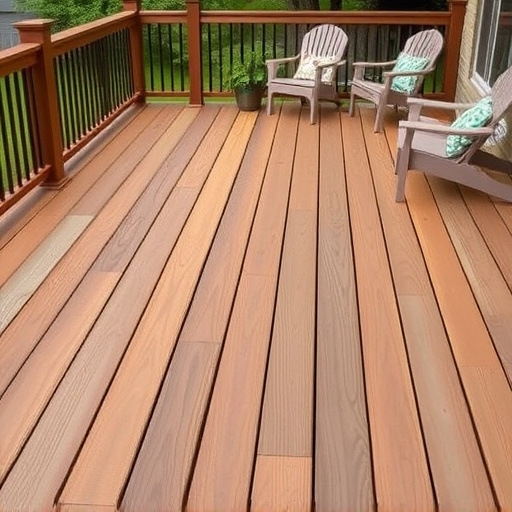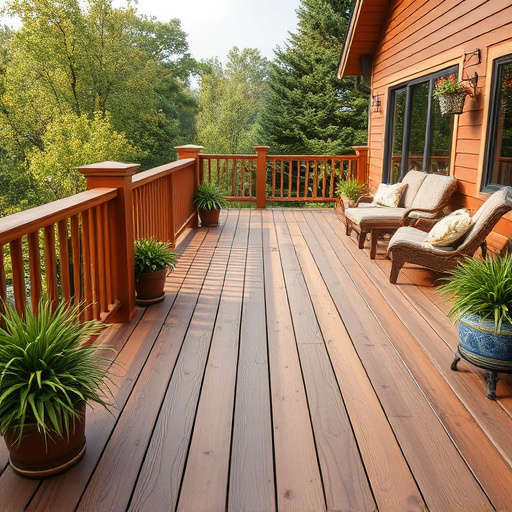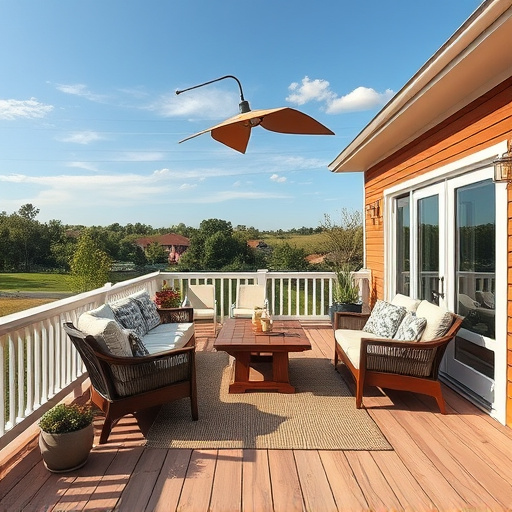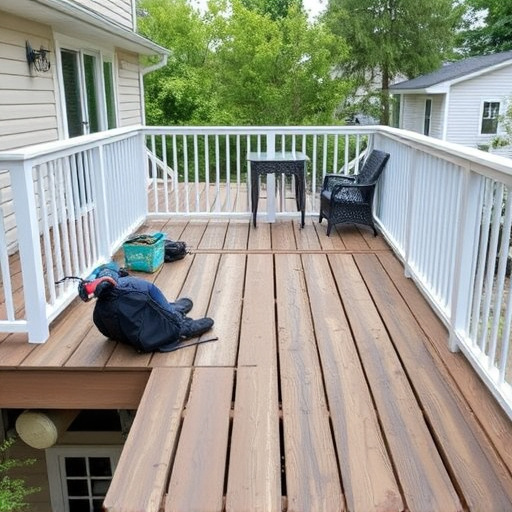Choosing a pool deck material involves balancing durability, maintenance, safety, and aesthetics. Modern options like composite decking and vinyl offer easier care, slip resistance, and design versatility. Natural materials like wood and stone provide charming looks and blend well with outdoor spaces. Recent innovations in concrete, tile, and composites enhance durability and low-maintenance features for a beautiful, safe poolside environment.
When it comes to enhancing your outdoor space, a pool deck is not just about aesthetics—it’s an investment that requires durability, safety, and style. This comprehensive guide delves into the top materials best suited for pool decks, offering both natural charm and modern alternatives. From the warmth and character of wood and stone to the versatility of concrete, tile, and composite surfaces, Understanding these options is key to creating a stunning and functional poolside retreat.
- Understanding Pool Deck Materials: A Comprehensive Overview
- Natural Options: Wood and Stone for Warmth and Charm
- Modern Alternatives: Concrete, Tile, and Composite Surfaces
Understanding Pool Deck Materials: A Comprehensive Overview
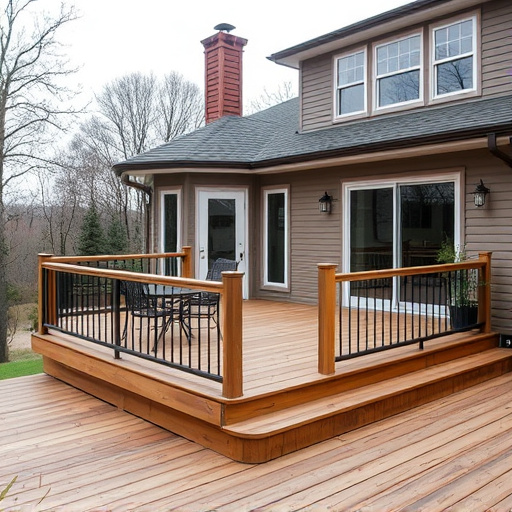
Choosing the right material for your pool deck is a significant decision that goes beyond aesthetics. It directly impacts durability, maintenance, and safety. Pool decks are highly exposed to varying weather conditions, harsh chemicals from pool water, and constant foot traffic, making them particularly susceptible to wear and tear. Understanding the unique properties of each material type—such as resilience against stains, resistance to fading, slip-effectiveness, and cost—is crucial when selecting a deck surface that will withstand the rigors of outdoor use.
While traditional materials like concrete and tile offer durability, they may require extensive installation processes and regular sealing to prevent damage. Modern alternatives, such as composite decking or specialized vinyl, offer easier maintenance, enhanced slip resistance, and a wider array of colors and designs. Additionally, when considering long-term value, factors like longevity, resistance to rot and pests (important for siding services and roofing repairs), and potential return on investment should be taken into account. Ultimately, the best material for your pool deck is one that balances durability, aesthetics, low maintenance, and safety requirements to create a delightful outdoor living space.
Natural Options: Wood and Stone for Warmth and Charm
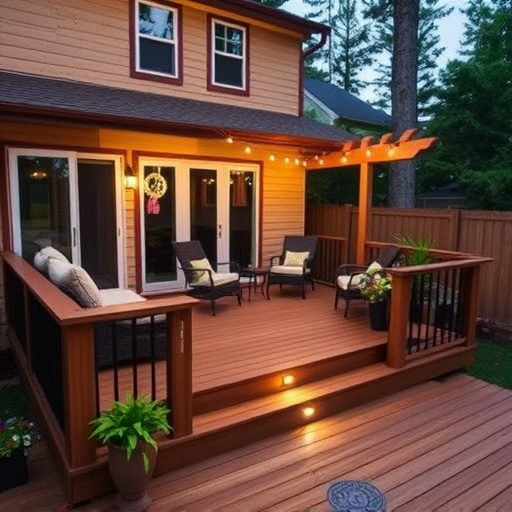
When it comes to creating a pool deck that exudes warmth and charm, natural options like wood and stone take center stage. These timeless materials offer an organic aesthetic that seamlessly blends with outdoor living spaces, providing a inviting ambiance for relaxation and entertainment. Wood decks, with their intricate grain patterns and subtle hues, add a touch of elegance while being relatively easy to install and maintain. Various species, from cedar to redwood, ensure durability against the elements, making them suitable choices for both residential pool areas and commercial settings.
Stone, on the other hand, presents a robust and versatile option with its diverse textures and colors. From elegant travertine to rustic slate, stone decks create a sense of permanence and sophistication. These materials are highly resistant to storm damage repair, making them ideal for regions prone to harsh weather conditions. Moreover, natural stone enhances the overall beauty of the pool deck while also providing excellent traction, ensuring safety for poolside activities. Whether you prefer the classic charm of wood or the rugged elegance of stone, these natural options undoubtedly contribute to a captivating and inviting poolside atmosphere.
Modern Alternatives: Concrete, Tile, and Composite Surfaces
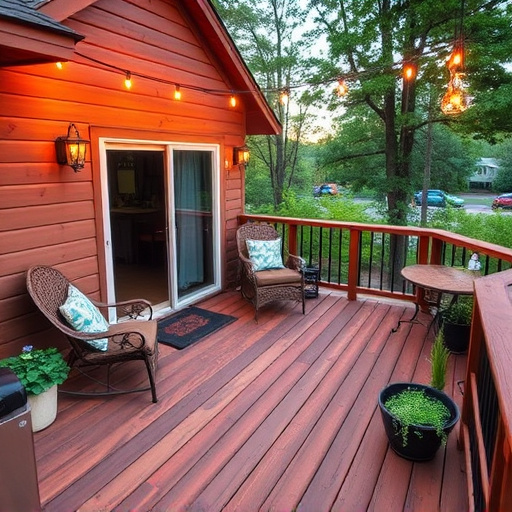
In recent years, traditional materials for pool decks have been challenged by modern alternatives that offer enhanced durability, aesthetics, and low maintenance. Concrete, a classic choice, remains popular for its strength and versatility but is often augmented with advanced techniques like staining and stamping to achieve a more sophisticated look. Tile, another long-standing option, is making a comeback with new technologies that enhance slip resistance and make installation faster and easier.
Composite surfaces are also gaining traction in the pool deck market. These materials, typically made from a mix of plastic and wood fibers, offer the appeal of natural wood without the maintenance requirements. They are resistant to rot, mold, and mildew, making them ideal for both residential and commercial siding applications. Moreover, roofing and siding services can integrate these composite decks seamlessly with roofing solutions, providing a cohesive and low-maintenance exterior finish that complements any pool deck design.
When choosing materials for your pool deck, consider both aesthetics and durability. Whether you prefer the natural charm of wood or stone, or the sleek modern look of concrete, tile, or composite surfaces, there’s an option that aligns with your style and budget. Understanding the pros and cons of each material will ensure a beautiful and long-lasting poolside oasis.








